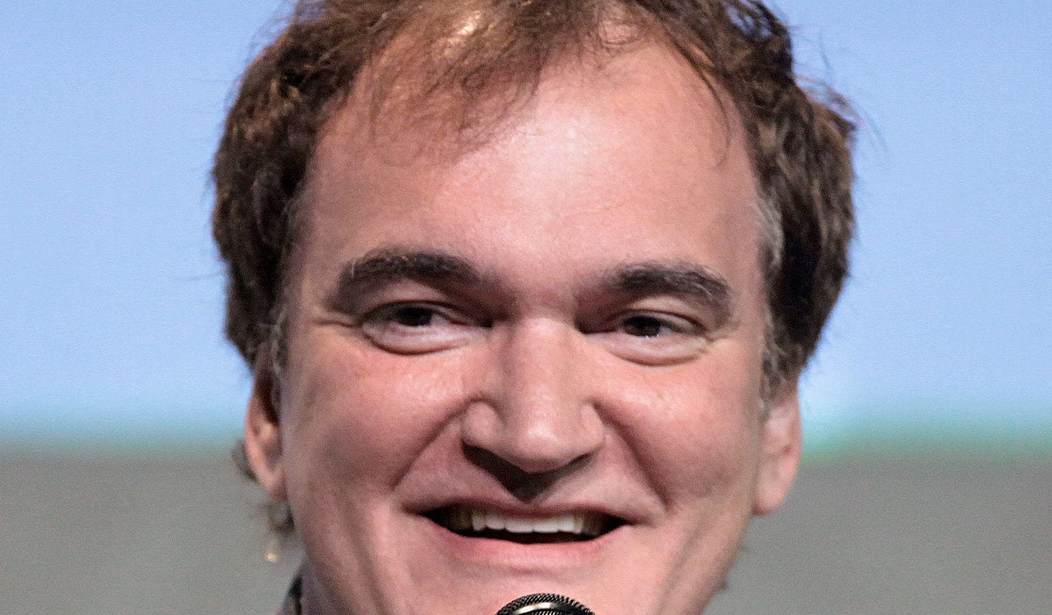What makes a movie or TV show good? What makes it entertaining and artistically relevant? Is it the quality of the acting? Is it the cleverness of the dialogue? Is is the aesthetic beauty of the imagery? Does it need an interesting plot or surprising twists or exciting action? Does the viewer need to care about the characters and want them to accomplish their goals?
Nope! None of that crap matters. What makes a movie or TV show good is how many lines of dialogue women get, compared to men. If men have more lines in a movie or TV show than women do, that means it’s socially unjust. That means it’s bad. And in order to determine this, somebody needs to sit down and count all the lines spoken by women.
Thank goodness for the intrepid journalists at Time magazine. Courtesy of authors Anna Purna Kambhampaty and Elijah Wolfson, with “additional reporting” from Currie Engel, Madeline Fitzgerald, and Chris Wilson, now we know:
We Counted Every Line in Every Quentin Tarantino Film to See How Often Women Talk
A New York Times reporter, in a recent interview with Quentin Tarantino, implied that the director had made a deliberate choice not to give Oscar-nominated actress Margot Robbie more lines in his latest release, Once Upon a Time… in Hollywood. Tarantino responded, “Well, I just reject your hypotheses.”
Whether or not you accept Tarantino’s implicit argument that he had no choice when it came to scripting the character of Sharon Tate, it is certainly the case that, historically, female characters in his films have had fewer lines of dialogue than their male counterparts.
We watched all 10 of his feature-length films and counted how many lines of dialogue were spoken by male and female characters in each…
The data show clearly that men have gotten the majority of dialogue in Tarantino’s films.
There are graphs. They made graphs. Interactive graphs.
Of course, Tarantino’s “implicit argument” isn’t that he had no choice when it came to scripting the character of Sharon Tate. His implicit argument is that it’s f***ing dumb to count the number of lines a character says and think it means anything.
Quentin Tarantino snapped at a female reporter from The New York Times who asked why Margot Robbie wasn’t given more to say or do in his latest film “Once Upon a Time in Hollywood” https://t.co/xACQXjyBu8 pic.twitter.com/5GraEtaSyw
— Variety (@Variety) May 22, 2019
What if Tarantino gave his fictional Sharon Tate character more lines, but she just said, “Duhhh, doyyy, I’m a dumb girl, let me take off my clothes and make you a sandwich,” over and over for two hours? That would put more numbers up on the board and improve Tarantino’s stats, right? Would that be preferable, for the likes of Time magazine? Would more lines of dialogue be better for women?
How monumentally stupid. This is a sad day for Time, and Henry Luce must be turning over in his grave. Nonetheless, I admire the sacrifices these young journalists made. Just look at what the co-author put himself through to bring this into the world:
We counted every line in every Tarantino movie to see how often women talk. This involved me seeing Once Upon a Time… two nights in a row, furiously making hash marks in a notebook in the dark while getting intermittent death stares from my seat neighborhttps://t.co/bT2nU23TMn
— Elijah Wolfson (@elijahwolfson) August 6, 2019
Such is the price of journalism!









Join the conversation as a VIP Member